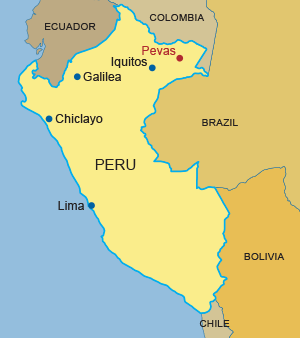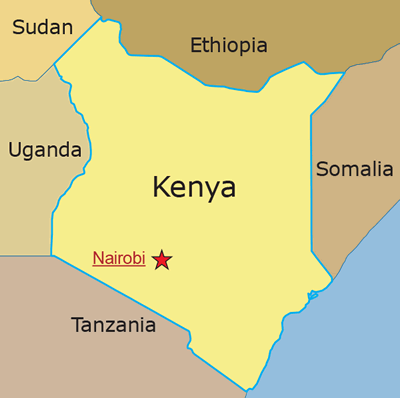|
WiRED International 2013 Year-End Review
BY ALLISON KOZICHAROW; EDITED BY BERNICE BORN
2013 marked a breakthrough year for WiRED. We launched our Health Education Learning Portal (W-HELP website) to introduce our expanded Community Health Information (CHI) e-library. We extended our presence in countries including Peru and Kenya and added Armenia to our list of countries served. We widened our professional medical training through projects addressing rheumatic heart disease and echocardiogram training. We also ramped up our Facebook page and added new features to our website.
In 1997 WiRED began in response to a need in the Balkans. In 2013 our organization continues to see needs and respond to them. In 2014 we will expand the CHI e-library considerably by adding new modules for grassroots audiences and opening entire sections for physicians, nurses and community health workers. Overall, we expect to add more than 100 training modules. We will distribute the CHI e-library in 20 additional countries by way of partnerships with other organizations, and we will continue our direct involvement in Kenya, Peru, Nicaragua, Honduras, El Salvador and Armenia.
WiRED International is proud to maintain its non-profit, audited status as we spend 95 percent of our funds on programs that feature our expertise, effectiveness, creativity and efficiency. Your donation to WiRED will go to work immediately as we strive to improve the health of the world’s neediest populations.
Watch the WiRED In Action 2013 video.
Click the image to watch the video.
WiRED started off 2013 with a major two-year grant from Medtronic Philanthropy, which enabled us to inaugurate the W-HELP website. This e-library of medical and health information modules empowers physicians, nurses, patients, health workers, family caregivers and members of the community to address the prevention and treatment of both infectious and non-communicable diseases in developing areas of the world.
With WiRED’s interactive training tools, communities and medical professionals alike can educate themselves through the material released on this new website. W-HELP presents modules on topics including high blood pressure, rheumatic heart disease, diabetes, women’s health, arthritis and HIV/AIDS. There are 15 courses on diabetes, 24 on cancer, a dozen on cardiology, and many more for a total of more than 300 topics. WiRED’s unique model aims to provide information about each condition to a specific audience, thereby ensuring that the right messages are conveyed to each group.
In March WiRED worked with an international team to bring our CHI program to Armenia for the first time and launched a program in response to the country’s health care troubles. Teaching poverty-stricken Armenians about healthy practices, harmful conditions, and illness signs and symptoms will improve health and reduce the need for costly treatments.
 In July the WiRED team made its third trip to Peru in the continuation of our goal to provide health education to off-the-grid villages on the Amazon. Setting up CHI centers provides the tools to educate communities about health issues that are critical to this population. Clinic operators, trained by WiRED, can offer our existing modules, which they can update when they travel to larger towns with Internet access. We are also preparing ways to stock the CHI library with portable devices, so visiting villagers can take these health education programs with them. Where needed, we use solar power to run the laptops, and we provide overhead projectors, so people in these isolated areas can meet as community groups.
 The year 2013 marked the 12-year anniversary of WiRED International’s work in Kenya, where we have established CHI Centers in several places. In action steps this year, the WiRED Team introduced our new CHI e-library, which enhances and revitalizes already established health modules and offers a wide variety of new modules.
In August a group of senior medical students from the University of Nairobi carried out a study on rheumatic heart disease (RHD) using an interactive educational module created by WiRED. The students found that RHD is the most common heart disease in children and young adults in developing countries including Kenya. As an easily preventable disease, its occurrence may be reduced by educating the community on preventive measures. It is clear from this study that these interactive digital modules significantly increase knowledge about RHD among school children, and this suggests that this method can reduce the RHD toll.
WiRED also expanded our community outreach program in Kenya. We are providing CHI Centers with projectors and laptops, so our local staff can take the new e-library to meetings, schools and workplace settings. This delivers effective health training directly into the community.
The WiRED team conducted a recent ceremony for graduates of our certificate program in Kenya. This program encourages community members to study health modules and to take tests on the material. Certificates are not offered as accreditation; their purpose is to confirm successful completion of the training modules. Overall, our goal is to steadily increase health awareness and health knowledge in communities where people have little or no access to dependable information about human health.
Throughout the year WiRED has created modules in response to needs in different parts of the world. Polio made a global comeback in 2013 in five countries including Kenya. In August WiRED acted rapidly to introduce our polio module, an important addition to our CHI library. Although there is no available cure and little treatment for polio, the module, distributed in Kenya in September, stresses prevention—the most important step in combating polio’s spread.
In addition to conflict, the threat of disease heightens the disastrous situation in Syria. In reaction to the country’s first outbreak of polio, mostly in children, in 14 years, WiRED rapidly translated our polio module into Arabic, and we are now making it available throughout the Middle East.
Tragically, Syria’s children also face severe malnutrition. WiRED recently learned about malnutrition problems in Syria and discovered that many physicians, nurses and health workers are unfamiliar with proper treatment procedures for a condition that few have ever seen. In response, WiRED added a module on severe malnutrition to our CHI e-library, translated it into Arabic and hurried it into the field.
^ Back to the Top
|

